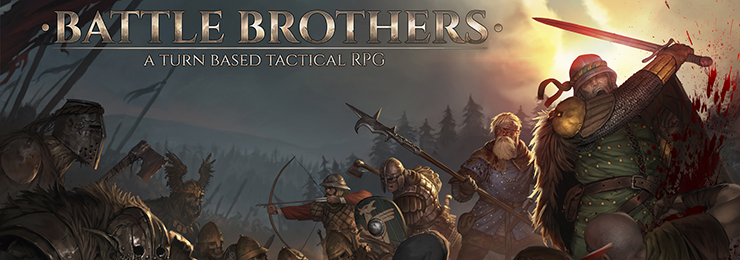
BATTLE BROTHERS – English Review
“Day 1
That bastard dog, Hoggart. We underestimated him, and we paid the price. Two brothers lie dead and that swine escaped our grasp, leaving his henchmen to finish the job. We dispatched them quickly. What’s worse was the fact that I had to return like a beaten dog to my employer and tell him I failed. He took it lightly, told me that he can find out where Hoggart is hiding. I have been given time to recuperate and build the company a little bit so we can take our revenge. This time it’s personal.
We went to the tavern. Sorrel Orcbane immediately went for a big jug of ale. I guess he wanted to commemorate his fallen comrades… and forget. I need to keep an eye on him, lest he ends up drinking the bottom of the barrel every time we stop at a town. I don’t need him drunk, ferocious though he may be. I need him sober and alive.
We returned after I managed to recruit a farmer boy and a miner from the local town. Time to kill that bastard, Hoggart.
Day 10
Days have gone by fast. The company is rebuilding quite fast. The company has even asked what our main goal should be. We should be ambitious enough, earn renown across the country, carry out more contracts. Things are running quiet. Escort a caravan to another town here. Patrol the area there. Track down some thieves. Nothing ambitious, nothing really hard. Mundane tasks, but they do keep the gold coming in. Nothing noble in a mercenary’s life.
Day 20
We have our banner. The lads seem to be in high spirits, even though they took a blow to their payroll. We have managed to have a good flow of gold, regardless. Admittedly, we have lost a few brothers due to bad strokes of luck – or strikes of a brigand’s axe, if you want to be precise. Our gear is in good condition. We even have money to treat Sorrel’s wounds in the temple. He already has a permanent injury (just don’t call him Sorrel One-Ear or you’ll end up being called Split-Head-by-Axe), I should keep him in as much in one piece as I can.
 He’s a beauty, isn’t he?
He’s a beauty, isn’t he?
Day 30
Our renown through the land grows. We killed bandits, protected towns, even “rescued” a few artefacts from the clutches of a few not-quite-dead horrors. We are now considered a professional company. It seems that I can haggle for better payments in prospective contacts much easier now that we’re more famous. Even nobles from different houses have sent emissaries to court us into their service. Fools. We have no allegiance but to whoever pays better. At least we will be able to get more food and better gear now. Alfred the Sergeant is shouting orders and keeps a tight leash on everyone. Alfgeir is folding our banner with great care. He drove the banner pole like a spear through an orc’s head the other day. A tale for the ages. He seems to have adopted spear spear fighting… I think I will train him down that path.
Day 40
I see this company, this band of brothers and I see nothing like the first day when we were beaten up and haggard after our encounter with… what was his name? I foresee that great things are ahead of us. Time to go to the tavern to have a drink, hear a rumour or two. Maybe a necromancer is on the loose or some fancy-pansy noble is afraid that orcs will raze his town. Heh. Hoggart’s (oh, yeah that’s it!) head smashing on our employer’s table seems like a distant memory now. Business is good.”
 Nothing would be more fitting for a banner than Hellion’s bane in RQ colours.
Nothing would be more fitting for a banner than Hellion’s bane in RQ colours.
BROTHERS IN BATTLE, BROTHERS IN BLOOD
The description you just read may as well be one of the multiple possible playthroughs you can encounter in Battle Brothers, Overhype Studios’ first big project. And what a project this is! Described as a “turn-based tactical RPG” this gem is a marvel of simple (board) game design, depth, and – believe it or not – immersive 2D-isometric visuals. Stay a while and listen.
You are a member of a mercenary company, whose contract suddenly takes a turn for the worse. Much worse. The bandit you were chasing the bounty of manages to escape as soon as you manage to apprehend him, decimating your company and leaving you as a captain to manage your company of three mates into greatness. Whether you want to pursue him for revenge or not, the choice is yours. You will end up escorting caravans, attack thieves, patrol areas, and during the endgame deal with one of the available crises in the game: Noble war, Orc invasion, or the rise of the undead. These crises have detrimental effects on the map as they can leave whole towns in ruins, something which is now optional, yet not recommended, with the latest patch. Most of the action takes place in the world map. You travel from settlement to settlement, searching for new contracts. The randomly generated world map is quite large and there are quite a few secrets to discover. Whenever you encounter hostile forces you are taken to the tactical map, where the turn-based battle will commence.
 Few, young but still very deadly.
Few, young but still very deadly.
What is evident enough from the start is that you are a mercenary company. Money is your language and this is the limiting resource, at the start of the game. You need money to equip your mercenaries with better gear, buy provisions such as food and blacksmithing tools, bandages and medicine. The provisions play a very important factor in the game as your band needs to be well-fed (keep in mind that food may rot) or they will become discontent and may even desert you. Blacksmithing tools and medicine are of vital importance, too, as you need your gear to be in top-notch condition and the gritty mercenaries in full health before every battle. This may not be the case early on when your funds are very limited but as soon as you start fulfilling contracts which pay well, this obstacle is easily overcome. As the game progresses you take different contracts, not quests – forget about being a jolly paladin for once. You haggle for the price, demand money up front, more money in the end, whatever you think is good for your services. Sometimes, negotiations turn sour and the contract is null even before it is started. Your prospective employer is pissed off at you for being too demanding. Oh well, there will always be work in the next town. And so, you move on.
 One death, an injury, and some level-ups. I call this a good day.
One death, an injury, and some level-ups. I call this a good day.
Visiting different towns you get access to different buildings which provide different services. Fletcher shops for buying bows, crossbows, and ammunition, armourers for armour, blacksmiths for weapons, temples for treating wounds, even a trainer to provide with the necessary XP bonus buff for a set number days for a selected mercenary. What is common and ubiquitous is the Marketplace and the Hire option; the former is where you can trade in goods for money and buy invaluable resources, the latter provides you with manpower whenever you need it. In most instances, once you finish the battle even if you’re victorious you will be licking wounds, which you either treat right away in the nearest town with a temple or wait for them to heal gradually over time. Having a few mercenaries in reserves would always be a good backup plan so you can have a healthy band every time you dive into battle. The initial recruitment of mercenaries is quite easy. You pay a fixed amount at the start and have a daily upkeep which heavily depends on the mercenary’s level and background. Each mercenary has his own background which can range from a simple farmer to a cult follower (praise R’lyeh) or a blood-thirsty murderer. Backgrounds are not just flavour for the mercs as they prove to have an impact on how certain random events are resolved and how mercenaries interact inside the company. Keeping your whole company content proves to be tricky later on, as you have to deal with formed and settled vices and virtues, deal with disgruntled individuals who have been in reserve for too long etc. The RPG element revolves around upgrading the abilities and skills of each mercenary as soon as they level up. The skills are quite numerous and provide interesting possibilities in the combination of builds and the synergy of the active group as a whole.
All these synergies and combinations are the game’s bread and butter. After all, it is described as a turn-based tactical RPG and that is its main feature. The combat is depicted in simple maps which may have different elevation tiles, be covered in snow, have obstacles etc. This, of course, has a major impact on how the combat plays out, as the terrain influences your company members’ spent action points and total fatigue. Each brother has a set amount of action points (9 per turn) which he can spend for movement and/or skills tied to his equipped gear. Another complexity layer added to combat is directly tied to whom you encounter each time. For example, orcs are rather hot-headed and dive into battle head-on dealing immense amounts of damage, while having quite low defence values. Undead suffer no fatigue penalties and essentially fight you until they wear you out, so you need to dispatch them fast. Human enemies (e.g. brigands) may adopt more conserved tactics where they wait and try to bring you down with ranged weapons.
 The terrain is to my advantage.
The terrain is to my advantage.
I found that the AI behaves in many interesting ways and was constantly on the edge to keep up with it. You will be dragged by quests at the start, but as you progress and improve you will have the space to move around your “pieces” and adapt your playstyle in each upcoming battle. One can easily write pages and pages of the different tactical aspects of the game, which would not be the purpose of this review. This being said, Overhype Studios have provided a few scenarios in-game to get the players accustomed to the various gameplay elements and, even better, a few tutorial videos which explain quite a lot.
BEWARE OF AN OLD MAN IN A PROFESSION WHERE MEN USUALLY DIE YOUNG.
A main distinguishing feature of “Battle Brothers” is its difficulty. The game does not hesitate to punch you in the teeth and serve them on a platter for breakfast. For this review, the playtest was carried out on Veteran difficulty (the second ‘easiest’ mode) with the feature of permanent destruction of towns (during the endgame crises) enabled. Everything feels quite rogue-like; from the initial world map generation to the individual battle maps themselves. I am not ashamed to say (well… kinda) that for the review to progress I did resort to a lot of save-scumming before battles (some resulted in dreadful wipes). Each load resulted in a completely different layout of the map, even if it was essentially the same group I would be attacking (or defending against) each time. The AI was never suicidal but planned quite well their attacks. The RNG of some skills is a little frustrating (three consecutive attacks with 75% chance to hit and they miss?) but nothing game breaking as a whole.
 I have a bad feeling about this.
I have a bad feeling about this.
So up until now you’d assume that the game is spotless. Well, it isn’t. The quests do get repetitive after a while. There are only so many ways the local constable can ask for a caravan escort or that a band of thieves has stolen a particular phallic idol of vigour and fertility (which of course belongs to a friend of his). Thus, the quest variety may not be that much, but the game makes up for it with the well-penned descriptions. Not once did I find the text overbearing, overwhelming and intimidating. Short and sweet, it served as the perfect precursor to lay down what would happen next or make me thirsty, hyped and prepared for the next battle, which after all is what the game is all about.
Now bear with me as I get philosophical. Video games are considered by many hobbyists as art. Vague as this statement may be, in quite a few cases it is true. The oversimplified view is that since video games as a means is aesthetically pleasing to the eye then it is “artsy”. My point of view is that a game can truly be considered art is when it can provide interpretations which transcend the medium and leave an imprint on the “receiver”. The delivery, of course, is also vital. Don’t get me wrong, Battle Brothers does not contain some deeper meaning meant to be understood by the select few of an intellectual elite. Unless of course the meaning would be “crush your enemies, see them driven before you, and hear the clinging gold drop in your hands”. However, Battle Brother manages to immerse the player in its world, “live” the story he or she is building from the start, sentimentally bond with his or her mercenaries, even play favourites. I certainly did. Its whole artistic approach, which in my humble opinion heavily influenced by Hieronymous Bosch’s work “Christ Before Pilate”, is something refreshing to behold. Suddenly, you aren’t just playing a game, you’re taking an active part in making a grotesque Flemish painting of corpses on the field of battle. The music is also notable with the soundtrack setting up the mood depending on events.
 Choosing an ambition lays down a main objective you can strive for.
Choosing an ambition lays down a main objective you can strive for.
UNNECESSARY PHILOSOPHY CONTINUED
There is a concept in game design (for that matter science and art too, but what is game design if not the combination of the two?) which is: beauty is in the simplicity of things. Many recent releases seem to be a product of a team which thought that by being inclusive and catering for the needs of everyone would result in an amazing title. You can instantly see when such a thing becomes a flamboyant mess of verbose dialogue (the irony of self-reference here does not elude the writer). Michelangelo never started a sculpture by taking a few tentacles and joining them with a marble horse, so he could make a hermaphrodite horse/octopus. Instead, he slowly chipped away a block of marble revealing what he had already envisioned.
This is what I see in Battle Brothers. Every unnecessary mechanic which could have made it in the game just because “it just works” is not there. In its concept, the game is absolutely, beautifully, almost perfectly simple. The combination of all the simple elements is what results in the depth and complexity (and steep difficulty, do not forget that) of the game. Every quest description is as if narrated by a 20-year tenured Dungeon Master, providing you with all the necessary info while leaving quite a lot to the imagination. Every mechanic is tied well together with the other, without being out of place.
 Some deaths hurt more than others… A mercenary’s life is a cynical one.
Some deaths hurt more than others… A mercenary’s life is a cynical one.
In the end, one can argue that Battle Brothers is an amalgam of elements from different games. Its roots grow past the obvious answer of Heroes of Might and Magic influence to that of Darklands (MicroProse, 1992). During my on-going playthrough I felt more connected and invested on my heroes ragged, gritty, filthy brothers than I did on those in Darkest Dungeon. I was in complete stress before a potential hit during the battle and did more improper hand gestures to my screen once it landed than I did in XCOM-2. I felt as much conflicted for the long-term impact of my decisions as I did in The Banner Saga. Battle Brothers immersed me more than what you would expect from “just” a turn-based tactical RPG. I love its artistic approach, its mechanics to every last bit, and of course its unforgiving difficulty curve. I would not have it any other way. To this reviewer’s humble opinion, this is easily the leading candidate for indie game of 2017.
Pros
- Simple mechanics to learn, hard to master
- The seemingly large variety in company composition
- The RPG element is well-thought out, the tactical part exceptionally executed.
- You feel quite invested in your company after a while.
- Its artistic approach
Cons
- Quest variety is poor, but it is a secondary feature anyway.
- Sometimes the math behind a successful hit is deceivingly high (or it may be confirmation bias when you miss that *one*shot).
- Too steep a learning curve which can be demoralizing for beginners. Prepare to be challenged.
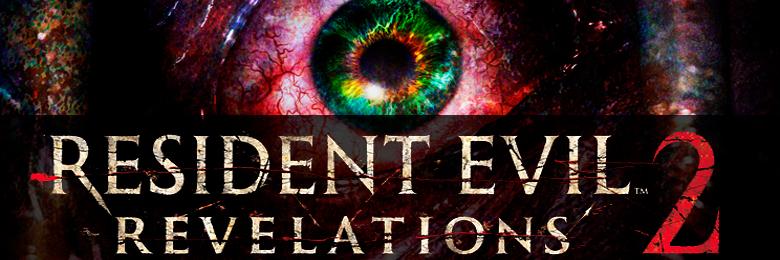
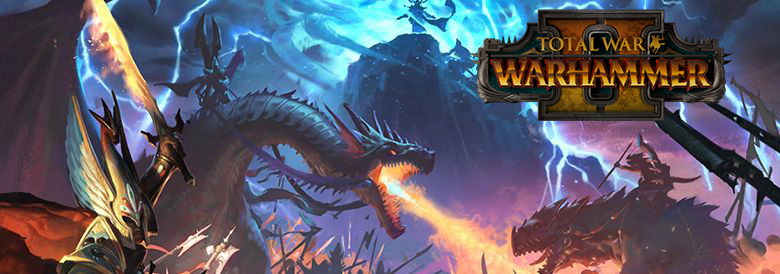
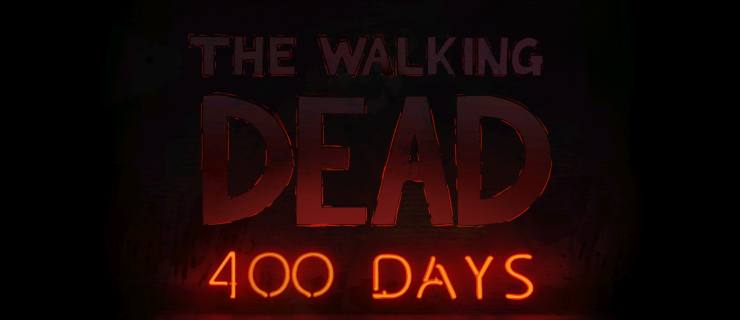
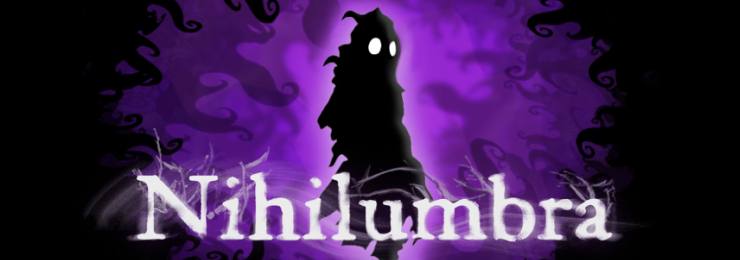
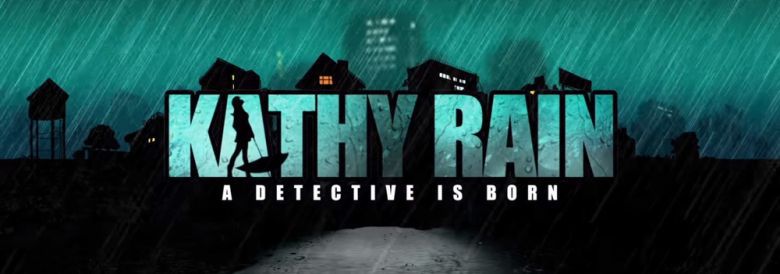

A long awaited review, at last!
The game is really awesome 😀
And to think that Overhype is 5-6 guys who surpassed with their game teams comprising of hundreds of people really speaks for itself..
Thanks for the review, mister Paul!
Will you write one in the other funny language too, that you usually write in this site?
Which one? Greek? So dead a language mate. :p
Very true. The team consists of 6 people in total (you can see them here (”http://battlebrothersgame.com/team/”)). I would definitely urge anyone to visit Breakdown Epiphanies’ Soundcloud page, where they have the game’s soundtrack (”https://soundcloud.com/breakdownepiphanies/sets/battle-brothers-ost”) and various other projects. Quite worth listening to, indeed!
Indeed the soundtrack is very immersive. Reminds me of Basil Poledouris at some tracks 🙂